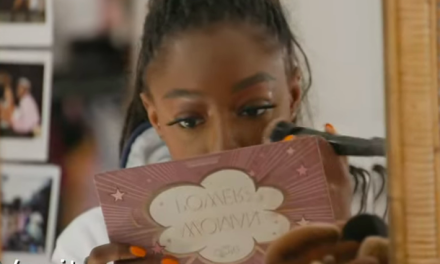
We are an interconnected world, as we’ve discovered more powerfully than ever through the pandemic, and if that interconnectedness sometimes brings unwanted offerings, such as the virus, it also brings treasures, like that of kindness.
Because of the pandemic, we are, for the most part, kinder to each other. Neighbors check in on neighbors to make sure everyone is all right. People offer to do errands for those who can’t leave their homes. Others share whatever paper goods they have with those who are lacking.
Yes, we observe social distancing out of self-preservation, but also out of respect for one another, out of basic human kindness.
We are more conscious of others’ necessary personal space as well as our own, more considerate of letting people go first if they seemed more needy. We share information about how to make masks, how to deal with home-schooling, how to wash our vegetables.
Just as interconnected sing-alongs raise our happiness level higher than solo singing in the shower, kindness to each other breeds more kindness.
What if this mind-boggling global crisis leaves in its wake a kinder humanity? What if we continue to be more considerate of each other, mindful of one another’s well-being, sharing and caring more than ever before? What if we consciously make this a better world post-Covid?
The Great Kindness Challenge
Recently, I discovered The Great Kindness Challenge, started by Jill McManigal of Carlsbad, California. It encourages school kids to be kind to one another (and to themselves) by performing as many acts of kindness as possible every week, chosen from a list offered by the Challenge, free of charge.
Performing these acts helps the children be more conscious of how they are treating themselves and others. This has already proven beneficial in creating a more joyous and harmonious environment for the children and, in turn, is conducive to a better learning environment.
Now then, what if we – adults and children alike – took on a similar challenge, to help us continue the forward progression into greater kindness? All it takes is becoming more conscious of how we treat ourselves, and how we behave toward others.
Not just towards the significant others of our lives, like spouses, boy/girlfriends and family, but towards the people we encounter in our day-to-day lives.
Many of The Kindness Challenge items would work just as well for grown-ups as they do for children, anywhere, anytime, such as “Smile at 25 people,” “Compliment 5 people,” “Make a new friend,” “Hold the door open for someone, “Pat yourself on the back.”
Making the world a better place most often starts with each of us making our own world – the one we live in day after day – a better place.
Take, for example, Pat Taylor, who, at 80, is once again battling ovarian cancer, which she had beat several times since her first round in 2004.
Yet Pat continued volunteering five days a week with a local elementary school (until schools shut down because of Covid-19), doing whatever was needed in the cafeteria that always seemed to be a person short.
It didn’t matter whether she was peeling potatoes or chopping vegetables or cleaning up the kitchen, Pat refused to let her health challenge get her down. Her love of life is expressed in every act of kindness she performs to the great benefit of all she serves, as well as to herself.
Kindness Is Simple
Kindness doesn’t have to be complicated. You can tailor your kindness challenge to whatever fits best for you. My personal challenge (given my passion for appreciation) is to thank people who don’t expect to be thanked.
For example, the grocery-store employee who sanitizes the carts (“Thanks for helping us stay healthy!”), the police officer taking a Starbucks break (“Thanks for keeping us safe!”), the workers who remove the mudslides on our post-rain California roads (“Thanks for cleaning up our roads!”). I get an awful lot of surprised looks, almost always followed by a very pleased smile.
Different from performing random acts of kindness (as wonderful as those are), a Kindness Challenge targets specific people. There’s nothing random about it.
Above all, what it accomplishes is to increase our awareness of the impact we have on others, an impact we have grown so much more aware of during these Covid months.
Thank you, Kindness Challenge, for reminding us of the power of ordinary, everyday kindness.
Do you make a special effort to be kind to strangers? How? Any pleasing reactions from others when you showed them unexpected kindness? What acts of kindness have you found that generate the most positive response? Let’s have a conversation!





